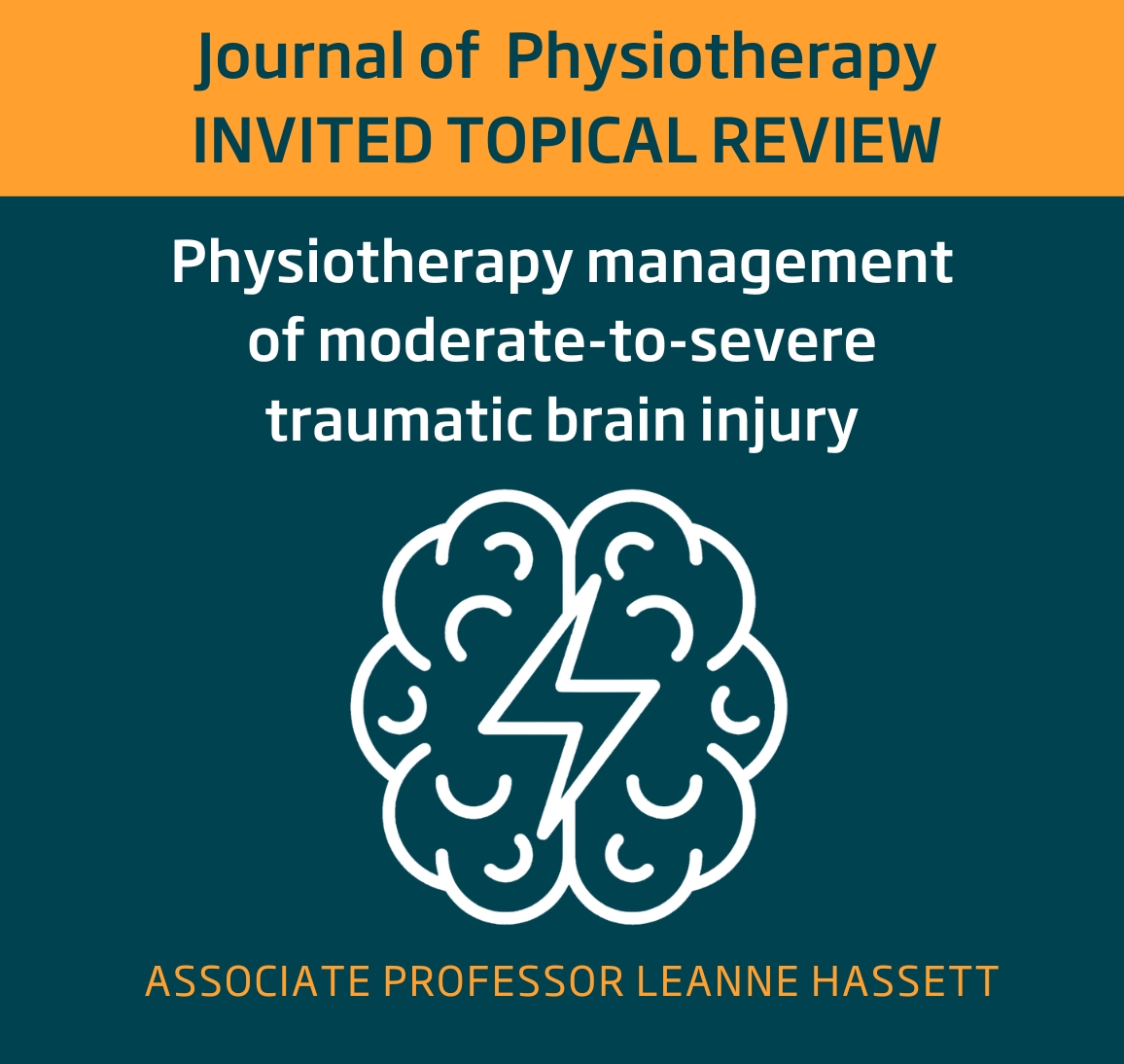Physiotherapy management of moderate to severe traumatic brain injury
Traumatic brain injury (TBI) is a leading cause of long-term disability and can occur at any point across the life span. It is defined as an alteration in brain function caused by an external force to the head during road accidents, falls, blast injuries, acts of violence and sporting injuries. While it used to be more common in young male adults, the incidence is growing in adults who sustain a fall.
Presentation of moderate-to-severe TBI varies depending on the site and severity of the brain injuries as well as on other injuries sustained at the same time. The person with TBI may exhibit cognitive and language impairments, behavioural disturbances and primary and secondary physical impairments including neuromotor impairments, pain, muscle weakness, hypertonus and spasticity, cardiorespiratory deconditioning and vestibular symptoms.
While the reported incidence of TBI varies, an international analysis estimated an annual TBI incidence of 295 per 100,000 across all ages and severities. However, moderate-to-severe injuries are estimated to account for most health-related costs, despite making up a small proportion of the total incidence (23 moderate TBI per 100,000 and 13 severe TBI per 100,000). Unlike stroke-related brain injury, TBI primarily affects people during their most economically productive years and the effects are lifelong—consequently, the economic and societal costs are very high. In Australia the lifetime cost of new cases of TBI was $10.5 billion in 2008.
Physiotherapists play an integral role in managing TBI, from the acute care setting to rehabilitation. During the acute phase, the physiotherapist works within the treating team to improve respiratory function and to prevent respiratory complications and secondary brain damage as well as minimising muscle contracture and other complications. When the patient leaves acute care, they may move to inpatient rehabilitation under the care of a multidisciplinary team including physiotherapists for a period of weeks to months. On discharge, patients may continue to require physiotherapy management for more than a year to improve functional outcomes and community reintegration.
In her Journal of Physiotherapy Invited Topical Review, Associate Professor Leanne Hassett provides a comprehensive summary of the presentation of moderate-to-severe TBI and the key physiotherapy interventions delivered as part of rehabilitation to patients with moderate-to-severe TBI. Future directions for research and practice are also discussed.

For more information and to read the entire Invited Topical Review article, click here.
This blog is a Physiotherapy Research Foundation (PRF) initiative.
Associate Professor Leanne Hassett APAM is a physiotherapist and mid-career academic at the University of Sydney, working in an academic role in the Sydney School of Health Sciences and a research-intensive academic role in the Institute for Musculoskeletal Health leading the research theme of physical activity for people with physical disabilities. Leanne has worked clinically for 15 years in brain injury rehabilitation and holds an Honorary Senior Research Fellowship position in South Western Sydney Local Health District.
